|
A historic vaccination enters our writer's bloodstream.
A great triumph of science entered my bloodstream last week, an event that involved the bizarre, post-apocalyptic experience of entering an ice-skating stadium turned makeshift vaccination centre and being told off for taking photos of men in army suits. ‘It’s a historic moment,’ I told the nurse who stood over my shoulder and made sure I’d deleted each one. I was surprised by the extent to which my body reacted, its weakness, and the strange fever that followed the night of the vaccination, in which I’d dreamt of my brother strangling me. It’s one of my most recurrent nightmares, but this time had the twist that I’d fought back. I’d had assignments that week -- interesting ones -- and was annoyed by the slowness of my mind, worried that attempts to preserve my sanity through lockdown had dulled the critical faculties I need to perform well professionally. Sometimes, it feels like when you turn a light on too bright you don’t notice the cobwebs you’re supposed to as a half decent journalist. I ask myself the question - In making concerted efforts to be happy, had I turned my back on my own intellect -- and at what cost? And where’s the middle ground between living a life of joy, and a life of purpose? I’ve been making concerted efforts to follow and scrutinise the news again, properly, and in German, writing out each unfamiliar word as I used to, back at university when the fear of blowing up my brain had no hold over me, when everything was a frenzy of learning, and where everyone was unapologetic in their love of knowledge, complexity and of depth. And more than willing to put up with the discomforts that came with that sort of cognitive stretching and scrutiny. But now I’m romanticising a time that was also really challenging, and an environment against which I’d actively rebelled sometimes, too. Seems like wherever I am, I find a way not to fit. But maybe that’s just where I’m meant to be. P.S. I'm towards the end of Ferrante's Neapolitan Quartet, and it's literally the best thing I've read in five thousand years. Highly recommended.
0 Comments
Our writer revisits the tapestries of lockdown malaise, once more ... and with feeling.
As I write this, I wonder whether I have anything at all noteworthy or useful to say. An intention to stay as upbeat as possible has persisted through the month and through this half of the lockdown, although I really am struggling with the extent to which life truly feels like Groundhog Day at the moment, struggling to find the patience for it. It feels like it's cracking me up a little bit, like it is everyone. What to report when everything is more repetitions of the same? Well, two new plants have entered the household. Joe and Karmala. Karmala flourishes, Joe struggles to get the sunlight he needs, however many manoeuvres around the apartment I take him on. The rescuer in me struggles in watching him suffer, keeps wondering if there’s something else I can do. Perhaps I need to let go a bit, let him find his own way. Caring is hard work. Hard work but important work. That goes beyond these four walls, of course. I see a hashtag trend on Instagram that I approve of. “Community-care” as a subcategory of “self-care” –and as a step away from the increasing egoism of the aforementioned movement. I like this. If I were an inspiring influencer I would say, now “what are you doing to extend beyond yourself and support the spaces that bring us together which we once so took for granted?” I am not sure that is quite the language an influencer would use, though. I don’t think I would be a very good influencer. I am far too awkward. Recently I had to listen to my own stupid voice when I was transcribing an interview I did for an article. Who says “I feel you” five thousand times to a computer scientist explaining ‘multi-agent systems’? What’s wrong with me? What else to report? What else to report? What else have I discovered helps in such strange times? The usual suspects: gratitude lists and little projects. Trips outdoors whenever there is a sliver of sunlight. I am grateful for my job, that I have work interesting enough I can get lost in, challenging enough that it feels like there’s always something new to learn. I am grateful for the tiny wins along the way in discovering more and more about this new field I am in. One is that I managed to sneak a cheesy pop culture reference into a complex computer science piece this week. That was ‘fun.’ I report this fully aware of how nerdy it makes me sound. I always say that learning anything feels like stepping into a forest in which you are quite alone. At first, everything feels so dark and scary, and you can’t find your way. You are fumbling so inelegantly, and –honestly– the only thing keeping you going is the sort of blind faith you have that clarity will eventually come. So you keep going, moving through this darkness that is at once terrifying as is it electrifying. There is just so much to learn. A whole, completely uncharted territory waiting for your footprints to wander through. And slowly, through all that bumbling, and faltering, and tripping, and looking like a complete idiot, your eyes start to adjust. Your ears sharpen. Your fingers develop a cleverness to them you never knew they had. Slowly, this darkness is no longer an unfathomable mesh. It’s gloomy shapes you begin to identify, little pieces in these endless puzzles of knowing. For my part, this is one of my favourite stages on the journey –the first crossing of total unknowing into some form of intelligibility. In language learning, for example, that’s the point where you can listen into a conversation and start knowing what the subject matter is, even if you can’t really follow it. In discovering a new field, or investigating a story, it’s the place where you start being able to join the dots together you wouldn’t have seen before. In fighting, it’s being able to hold your own and not completely freeze up, in having and holding to a rhythm. In settling into a new city, it’s being able to ride a bike around and know where you’re going. In getting to really know someone, it’s the arrival of that indescribable gravel that comes with letting them get under your skin. And all those strange frictions. Each journey of course is completely unique, unfolding at its own pace and with its own specific ups and downs. But one thing most have in common, is that –unless they are forced upon us –they only begin in our being brave enough to take that first blind leap into the unknown. Brave enough, and trusting enough in our own capabilities in charting a course through the forest, and being OK with whatever happens to us along the way. But anyway, it’s now light outside, and honestly, this is all there is to report. BerlIn’s dark and strange winter, they say, is on its way out. Nights are supposedly shortening despite how very long they still feel. Perhaps, then, I should see this experience as its own dark and endless forest, something to keep moving through and moving through and moving through and moving through. And moving through. Deep beneath the cover of another perfect wonder, where it's so white as snow.
Snow fell on Berlin, the first I’ve seen in seven years. I was grateful for it. Grateful for having adjusted to the cold again, too. This time last year I couldn’t stand it, layered myself up like the Michelin man, made a b-line in whichever room I entered for whatever chair was closest to the radiator. Now something about the cold thrills me a little bit, especially when sucking in air after a tough run that tastes like it’s descended from the north. Accelerando Snow fell one day after the second of January, the day two friends and I had agreed to complete a circuit of the city that had amounted to 21 kilometres – my first half marathon. Theirs too. Again, another thing to be grateful for. Having the kind of friends who would agree to do something like that, with almost no notice and with little prior training besides the variations of a much shorter route we repeated week after week in our local park, raking up a commendable mileage during a time in which the possibilities in how we could actually spend our time together had narrowed and narrowed. If it’s true that we are what we repeatedly do, then I’m a runner now. And a relatively good one, despite my short legs. Of course, like everyone else, I am looking forward to the lifting of the lockdown and the end of the pandemic. Most of all because the spreadsheet of people and organisations in my head that I worry about, all over the world, will, I am assuming, shorten a little bit. I am not worried about myself. The year provided the crisis I personally needed to step into a career and a professional arrangement that has a sense of security, support and optimism my old life always lacked, just as everything from the year before served as a much needed prompt to make a home in the city I always wanted to end up in. I know all of this makes me quite lucky, that these options were available to me, and that what it was that I had to do was determine the door I wanted to open and knock politely but determinately enough until it did. When you worry a lot, you think quite often about all the bad things that could happen. And you often forget to think about the good things that might sometimes be on the other side. Not necessarily ruin. Sometimes, and in some cases, renewal. I’ve enjoyed being a plant mum. Ernie and Bert – winter plants that grew voluptuously and which I am certain thrived all the better when I placed them next to each other (a gesture that perhaps speaks to my own social distancing blues) –have been joined by a set of daffodil bulbs to help mark spring’s gradual onset. Lentadando The streets on the day of the half marathon were relatively empty. It was a nice way to see the city, especially with the added variable of an absence of tourists. And I had a fresh and nice feeling one rarely has at the beginning of a new year: “This is exactly where I want to be. This is exactly how I want to feel.” It’s been a very strange year to return to Berlin, but not a wholly bad one, for me. There has been something in the narrowness in possibility that has felt quite calming and comforting, especially knowing that it isn’t going to last forever, and having these rituals and routines to which I’ve grown quite attached. Like the beautiful park I see at least three times a week, with a lovely hill that comes especially into its own at sunrise and as your indefatigable training buddy powers ahead of you. Sometimes this year makes me think about my first in China, in a third tier city in the middle of nowhere that proffered the most intense feelings of culture shock that I’ve ever had. It was quite a difficult adjustment. Actually, I was surprised by how difficult it was. You walked the streets with constant dread (albeit of getting mowed down by a motorcyclist, not contracting the horrible flu that shut down the world), you spent a large portion of your time feeling confused and frustrated, and entertainment-wise, certainly. Well, Toto– we were far from London. I think we accumulated the most time sitting on a large rock outside a small shop owned by friends we could barely talk to, but who we liked very much, whiling away the hours drinking beers, chain smoking terrifyingly cheap Chinese cigarettes and chucking peanuts shells on the ground. Initially, I worried about making a mess with my peanut shells, but soon learnt that this was what everyone did, this little behaviour showed that I belonged. So I took pleasure in it. I even developed a taste for rice wine. Sometimes, someone’s very cute toddler would be plonked on your lap, which would be an interesting variation of an evening. At other times, someone would walk past, first rest their eyes on your friend. And then on you, and say, in Chinese. “A foreigner! No… TWO FOREIGNERS.” And then move along. That Christmas there was one of the nicest I’ve had. A shopkeeper’s dog had just had puppies. Anyway, when I look back on 2020, I think I’ll feel about our weekly running route the way I think about that large rock we always sat on in Foshan. Da Capo al Fine I haven’t got nearly as much reading done as I’d imagined I would, but I did finally get around to finishing Jane Eyre –a book I wouldn’t have been caught dead with a couple of years ago, but which –paired with Gloria Steinem’s chapter in her book on self-esteem, has proffered welcome insights. And I love Jane Eyre’s sass. Other developments that might not otherwise have transpired include a renewed patience for flute practise, and a sense that I am getting close to sounding almost like did when I was sixteen and took it quite seriously – to the point where playing stopped being at all fun and just became another instrument for self-admonishment. When I picked it up again a couple of years ago, promising myself to focus on the pleasure of it and not turn into that scale-gunning ogre I was, it was nice, though I was disappointed in how much skill I’d lost, the amateur-ness of my sound. The solution has, of course, come, in making space for both. The pain of endless and at times infuriating and crazy-making repetitions. (A flat to E flat. A flat to E flat. A flat to E flat. A flat to E flat. A flat to E flat. A flat to E flat. A flat to E flat. A flat to E flat. A sharp to E flat. A sharp to E flat –sorry neighbours – A sharp to E flat. A sharp to E flat. A sharp to E flat. A sharp to E flat. A sharp to E flat. A sharp to E flat .A sharp to E flat .A sharp to E flat. A sharp to E flat. A sharp to E flat. A sharp to E flat.) And the pleasure of a piece you can play well as a result of all that pain. I have been teaching myself some new pieces, but actually the ones I like playing the most are the ones that most challenged me as a teenager. I still can’t get through Danse de La Chevre without making at least one mistake. Those arpeggios are mental. And you’d think, having played them hundreds of times, that they’d bore me. But they don’t, really. That is the whole point of classical music performance. You go through each repetition seeking mastery and perfection, and each time bring in something special and unique to a moment unlike any other. And it can be nice, even if what transpires isn’t exactly what you thought you wanted. Our writer enjoys soothing missives from the Norwegian wilderness, and remembers lab rats and childhood reading struggles.
News from the Fjord An elk fell from the sky and landed on the roof of a car speeding down a winding highway in the Norwegian west country last week. The driver survived. The elk– which it turns out had fallen off a cliff overhead– did not. I know this because my mother read about it in her local newspaper and shared the story with me in our now weekly phone call, a new ritual that has come out of these long and, at times eerily isolated months. Notes The routine of weekly phone calls between us began when Norway went into lockdown earlier this year. She was worried she’d get lonely. I was surprised to find that I enjoyed talking to her that often. The phone calls continued while she was in our family home in London, too. Why she went, when she could have stayed in Norway– a far safer place for a pandemic, was beyond me. But as I said, she doesn’t like being alone. And I was glad she wasn’t alone. I sent her workouts for the park. “I’m in my sixties, Sarah. I’m not going to crawl around like a bear in public.” Now she’s back Norway again, enjoying an enviable freedom, keeping me abreast of all the latest wildlife news interspersed by observations of her own of how ‘mean’ seagulls ‘bullied’ an eagle out of his dinner near the boathouse of the family cabin out in the Trondelag fjord. And how a ‘rude’ woodpecker has made a home on the front porch, loudly digging holes into the wall to impress his lady friends. My father and I used to make fun of how inane the Norwegian news cycle was. This year I’m grateful for it –I’m almost tempted to get in a subscription to one of these papers, sift through pages and pages of astonishingly-sized fishing conquests, and Norwegians in their silly folklore costumes marking some event no one outside the country has heard about. My grandmother was especially fond of a magazine called ‘See and Hear’ (Se og Hør), which as far as I could see, was just a catalogue of B-list Norwegian celebrities and their fishing boats. “This poor elk, just landed with a ‘thump’ on the car. Of course he died on the spot,” my mother said, in the Norwegian lilt that has grown more noticeable since she moved back to her homeland six years ago, a sort of limbo situation forcing her to straddle London and Norwegian family life while finishing off her final years as an immunologist at her hometown’s university in Trondheim. “What did you do this week at work?” I ask her regularly. “Oh, you know. Science,” she always says, looking to change the subject. It’s funny, journalists go on and on about their work, you can’t really shut them up. Scientists are usually quite different. They tend to have more humility, the work itself being much more mundane on a day-to-day basis. Over dinner, journalists talk about news events as if they were in the middle of all of them. Scientists return home with very little more to recount than that they might need to invest in a more upscale pipet. Vindictive lab rats My mother trained initially as a nurse, working in this capacity for long enough to realise that there lived inside her a hunger for solving the sorts of long and complex puzzles to which scientists dedicate themselves. I think I always respected the level of engrossment and dedication she had with her work, although there might have been frictions around the long hours. During my early years, before school started, I spent a lot of time with my father. He worked night shifts at a London newspaper at the time. My mother moved to London in the eighties on earning a little inheritance from an uncle, and with the aim of completing a PHD. This is how she met my father. Their marriage came faster than it might have done otherwise, owing to changes in immigration laws implemented by Margaret Thatcher. “I’ve always just gone with the flow,” she says. By flow, I think she means that her capacity for devotion, for moving through the patterns of her life without questioning too much, is rather strong. She’s a person of faith, too. Never saw a conflict in what she had learnt as a scientist with what she felt about her God. I respect her for that, though growing up I found this Nordic fatalism trying. If you don’t ask yourself the right questions at the right moments, how do you know you’re on the right track? How do you know you’re not an elk about to wander off a cliff? When I was little, she’d sometimes take us to the lab, introducing us to the rats you were allowed to hold, alongside the white ones that could never leave their glass cabinets. Once, she placed a grey one between my fingers. It bit me and I cried. Words that swim My brother was the budding scientist. I was the kid who couldn’t read. I hated it. Words would sort of – for want of a better way of describing it – swim on a page, and I couldn’t make sense of the ways the letters came together, couldn’t really see the logic that came naturally to everyone else. Learning to write felt like trying to paint on paper with a spear. It just didn’t really work. “L-A-P” – what word is that, Sarah?” I didn’t know. Trying to know always put me in a panic. Reading terrified me, but I didn’t really have much choice but to plough through it, trying to conceal this slowness as best I could, trying desperately to find my own solutions. I’ve ironed out the worst of it, now. Sometimes, when I’m in flow, I don’t notice it all– this panic and doubt that makes me second guess every word such that they start swimming again. If I need to, I can stem the way they swim by isolating a sentence, and tackling it word by word, remembering breathing exercises that have helped create calm in sparring scenarios, too. I am not really sure where or how this arrested development came about. With each new language I have learned, I have struggled with the initial building blocks of it, and fluency for me has always come in the form of having a handle on the unique rhythms and flows of a language, not really in mastering the grammar or spelling on any innate level. I still compulsively spell check. And I still harbour fears around being ‘found out.’ Which is funny, because I do this professionally now. And I’m good at it. But maybe it’s not that surprising, maybe it’s what I do to claw back some sense of control, however uncomfortable the process can still make me. It’s always a relief to finish with an edited piece. Tidy something up so there’s nothing wrong with it anymore. Don’t get me wrong. I genuinely love what I do. And I love words in a particular way that has nothing to do with the pain they initially brought to my life. Most of all I like how they sound, and that feeling you get when you finally think of the exact one you need. Some self-help gurus say that we either do one of two things: We either operate out of fear. Or out of love. And that it is ultimately up to us to choose love over fear. I understand this premise and I see its value. But I don’t think matters of the human heart are ever that simple, or that we always have that much power over what drives us. I think a lot of the time, we can’t really help the fact that our motivations and passions are driven by an interplay of both. Back to Berlin This weekend I had a friend come round. My funniest German friend. “Oh my God. This place! You’re Hannibal Lecter!” she said, before diving onto the piano and cracking out some of “Freddy ‘Small Hands’ Chopin”’s greatest hits. Though she’s a self-proclaimed ‘loner introvert’ who enjoys her own company, I think she’s going mad like the rest of us muddling through this strange year of repeating disconnection. This reflects itself in how she played, which felt more frenetic and passionate that usual, more magnificent. Makes sense. Art that endures usually comes from a place of discomfort and yearning. For my part, It was nice to get company in this hall of dark and ungodly things, to punctuate time spent between watching the frost settle outside my window in the mornings and trying to fix the pink flamingo figurine in a Christmas hat that I accidentally decapitated last week. Honestly, I thought I would make better use of all this time skulking about at home in a robe, to read and write. I got halfway through a decent Danish thriller that I enjoyed up until the point where I felt like it was making me lethargic. I have yet to complete the third draft of the beginning of a short story that has decided that it never wants to be written. One of these days I might end up printing out the entrails of these aborted efforts just to shove a spear through them. In the backroom of this lair –Hannibal Lecter’s lair– is a punch bag. Probably the crown jewels of the place. I could easily spend about two hours a day in there if it weren’t for other commitments and a fear of annoying neighbours. Bag work isn’t optimal – nothing replaces having a human partner, however many scenarios you dream up in your head as you shadow box. (Shadow box: how lovely is that phrase?!) But it’s a great way to focus on the foundations of the movements and the sequences, which is probably what I need anyway. I am out of practice in my striking, having mostly focused on trying to learn the interlocking logic of grappling this year as and when training has been possible. And last year, everything was so mad and gungho –I didn’t get enough time to just, sort of. You know: Jab, cross, right roundhouse, switch kick. Jab, cross, switch kick, right roundhouse. Right tee. Step back. Right tee. Step back. Right tee. Jab Jab. Right elbow. Block. Block. Jab. Cross. Jab. Jab. Jab. Cross. Jab. Cross. Knee. Step back. Knee. Block. Knee. Elbow. Block. Jab. Cross. Uppercut. Cross. Decoy jab. Gnarly right hook. Pause. Step forward. Clinch. Knee. And he’s down. On a side note, I’ve replaced the wilted, cut flowers with pot plants which I intend to water regularly and watch grow as a lockdown mood-lifting strategy. I have been told that I am unlikely to do well with plants, owing to my struggles in maintaining focus on simple tasks. “You can barely take care of yourself, Sarah,” a flatmate said this year. I don’t know. There are a lot of things people have told me I can’t do that I’ve done. So I don’t see how gardening is any different. In which the writer marks her first year back in Berlin with a foray into the colliding worlds of myth and reality, I celebrated completing my first year back in Berlin this week, marked the occasion with a remote call with the two friends – Ben and Alice - who had felt most like 'family' in Hong Kong –beleaguered but kindhearted journalists from my old newspaper who also happen to be some of the wittiest and most cynical people I’ve ever met. I gave them a tour of my new place, an eerily charming and quite expansive space with creaking floorboards that I discovered via the city’s journalism circuit. Here, chandeliers hang from high ceilings, an 150-year-old ‘atmospheric’ sounding piano complete with candle-holders stands next to a full-blown walk-in bar of dark wood and faux-gold furnishing and a beer tap that appears to only serve aesthetic purposes, as black-and-white illustrations and maps showcasing the Berlin of yesteryear abound. A panel of blood-red wallpaper completes the look. Lighting is quite low, so many of my evenings are accompanied by the glow of candlelight, placed next to the large, fat-stemmed and rather mysterious purple and white flowers I bought. I've left their fallen petals to wilt. A luxurious enough experience can be had lounging on the baroque-style, sheepskin-rug-bedecked sofa overlooking the hinterhof complete with trees that now sulk with their forlorn and jagged winter nudity, though the highlight of the space can be found in my bedroom, which is certainly more regal than any I’ve ever occupied and which overlooks a rather quaint graveyard. In self-help books we’re told to create a visual image of who we most desire ourselves to be. I’ve always had this picture of myself, feet propped up at a vast and powerful-looking desk complete with pillars of of books and papers, with a cigar in hand. This desk here comes close to that visual, though it’s of a rather grim and haunting dark wood that exudes undead vibes. “You’re renting from Dracula, aren’t you, Sarah?,” Ben says. I wouldn’t say Dracula so much as I feel like this place resonates more on a Huysman level. Huysman’s book Against Nature (À rebours) was one of my favourites at university, a recommendation from a tutor who always knew exactly what I needed to read, a rare talent that never goes amiss. Looking it up now, I find a version of an early translation in which its first page opens with the subtitle "A Novel without a Plot". Brilliant. Novels without plots, plots without novels Against Nature (described in on review I read as “one of the strangest books ever”) follows the eccentric Jean des Esseintes– the last scion of an aristocratic family– as he shuffles wearily around in a robe rarely leaving his luxurious but somewhat haunting home bemoaning the modernity and chaos of the outside world, entertaining himself with classical French and Latin literature of specific eras (the only good ones, he insists) and the companionship of a tortoise who he inadvertently kills when he sticks jewels onto its shell. As students of literature we are taught to think about the messages characters have for us in the present day. The book was written in 1884, and des Esseintes is presented as a relic of a bygone time, having retreated completely into a world of fiction he believes far suits a person of his lineage in an age of social and technological upheaval. (In 1895, by way of example, the Lumière brothers — pioneers of film — produced a short movie of a steam train roaring down a railroad, which marked the onset of the moving image, to name one major development that brought about the rise of mass culture). Des Esseintes is an interesting character to think about for a number of reasons, not least that if he lived today and had assess to Wifi, I can see him as one of those anonymous internet troll decrying all sorts of things in a last ditch effort to maintain a semblance of relevance ('to feel heard') In a world in which he can't keep up. (#notallaristocraticscions) The character also has a rare and specific "decadent" illness not without overtones of vampirism (a spectre that best symbolises these old-world/new-world clashes and fears that Decadent literature so evocatively explored). He is sickly and prone to sensory oversensitivity such that, in fact, books, books more books accompanied by the strange orientalist gongs of the so-called "East" that he has farmed in from worlds he has never seen (Said eat your heart out)– suffice in sustaining his creativity and enjoyment of life such that he never need step outside, nor seek companionship at all). Some people seem to think the onset of new technologies like AR and VR will turn us all into Des Esseintes. I am not ruling out the possibility. But it should be said that humanity has been inoculating itself against the realties of the world through fiction for millennia. We've always had access to that form of escape – the more shrewd humans among us have always found ways around the mythological noises that take us off course from the truth, however enchanting (and in many cases, rewarding) these meanders might be. A globetrotting granny Sometimes when I think about Des Esseintes and the question of fiction as escape (versus fiction as freedom), I think about my grandmother, a singular and cerebral working class woman who decided quite early on that the likelihood of finding a man who would show her the world she dreamed of seeing was quite slim in sleepy Tunbridge Wells. So in lieu of the pursuit of a husband she taught herself five languages and worked as a secretary in a multinational organisation. She met my grandfather while she was working in Vienna. Her marriage to the Hungarian Calvinist of Transylvanian roots was short. Some years later, she had an affair in what is now the Republic of Congo, but if I am correct spent her longest stint in the city that agreed most with her besides London: Paris. This is why I have a half-Malaysian half-uncle with a Hungarian surname who speaks French like a Parisian. If there was one thing that charmed my grandmother more than travel and the promise of new worlds, it was the world of ballet. All she wanted to do in her retirement was attend every dance institute in the area. She was probably a patron of more than she could afford, might have single-handedly kept many open. She lived for these fictional worlds, they sustained her in a way the real world couldn't. Conversations over the phone always centred around that season's theatre and dance programmes, and I was supplied with more novels from her while I was growing up than I knew what to do with. Of course she was the person who gave me my two favourite books from childhood: Little Women, and Chinese Cinderella – the latter being the work that sparked my own dream of globetrotting adventures I eventually realised (an event in which myth collided quite rudely with reality). Prone to falls and incidents one assumes come hand-in-hand with being rater bookish and otherworldly (as opposed to robust, coordinated and grounded), my grandmother approaches her 90s with a surprising lucidity and promising bill of health, despite having always been too "something or other" for this world. Smart, maybe? This said, she has recently moved into an old people's home, a confronting experience which has inspired some of degree of myth-making on her part. "These women are all prostitutes or lesbians!" she has said on one of those days she has in which her grip on reality is less strong. But anyway, back to Against Nature. I love the symbolism and the haunting hopelessness of the work, it's so eerie and meandering and mystical, captures the sort of total retreat into introspective god-knows-what-world that can happen to some circles during times of seismic change. That poor tortoise. To hammer down my point: In the words of my best friend from school, Ceyda: “I hate Trump because he totally took the fun out of conspiracy theories”. It's true. The fun has been taken out of myth-making and risky meanders from the truth. Our other school friend, an artist-turned-social worker specialising in drug addiction –who is my best source for understanding London's increasingly worrying crystal meth scene, (alongside the best confidante I've ever had), no longer sends me bizarre articles about airports designed by the illuminati from 'Vigilant Citizen,' the website that also inspired some of her weirdest illustrations. Our WhatsApp group is still riddled with snapshots of Occultish dolls and Victorian taxidermy fails, though. She most recently reports a great time to have been had at her virtual 'Moon circle' retreats, an activity she squeezes in between virtual gong baths and sobering phone calls with clients from all walks of life, and phone calls with me. Last month, when I was struggling with a greater degree of emotional disturbance than felt manageable at the time, I spoke to her about wanting some kind of emotional vasectomy, something that could efficiently remove these feelings from me so I wouldn't have to bother with them. "We all want that sometimes, Sarah. That's literally why people take drugs," she said. To return to our main event But, actually, my understanding is that, the previous tenant here was not Dracula, nor an aristocratic scion-turned-nutty-mystic, but a rather jolly German man who, according to neighbours, was prone to noisy, convivial late-night antics. “You mean sex parties?” Ben queries. Possibly, who knows about the stories that came here before mine. “I’d love to see you at a sex party,” Ben adds. “Standing politely in the corner saying stuff like ‘how nice it is we all get to spend time together like this.” The neighbourhood is quite different from the one I recently left. On my evening walks, which have now transformed into evening runs –the time of my day in which I feel most alive during these bizarre soon-to-be-mythologised, socially-rupturing lockdown times, – I am far more likely to bump into a drunk than a pram-wheeling lady holding a chia seed smoothie. One practise that continues here, as it did in Prenzlauer ‘pregnant lady’ Berg is that of people leaving items out for scavengers such as myself to root through. I’ve always enjoyed accumulating other people’s things, especially when their story is mine to try and interrogate, bring to life somehow, create fictions in the between spaces of their cracked realities. I now own a scratched gold watch, a flamingo figurine, a pink teacup and a forlorn and slightly ripped photo of someone’s dog, among many other decaying oddities. I’m not sure what to do with any of it but I am glad they are here in this, in this hall of dark, enchanting and zany things during these strange, long months –ready to recycle themselves out of their oblivion into some new story, a decadent meander between fiction and truth. Yours, Vlad the Impaler x. p.s. New (O.K, recently rediscovered #content uploaded elsewhere) In which the writer faces a second lockdown in her host city, watches a historic triangle choke, remembers her old newsroom and listens to Van Morrison's Astral Weeks. As our week comes to a close and a drizzly winter creeps upon us, Berlin ushers in a grim reality. Perhaps this second lockdown will not be as challenging as the first, hopefully it won’t feel as indeterminate and perhaps we’re all better prepared than we were the first time round. But I can’t shake a sense of weariness that feels to be everywhere. Can’t unhear every ambulance siren. On a more mundane level, the clocks changed (something that doesn’t happen in Hong Kong). I wouldn’t have noticed as much if it hadn't been for the failure in an adjustment to be made on some of the analogue faces of the metro system here– the clunky and bewilderingly dysfunctional BVG that has, for the first time in my life, made me wish I had learnt to drive. You glance up at these clocks as a shock runs through you, confronted as you are by their falsehood. Are you late? No, you are not late. Berlin is late. I partook in my ‘last dance’ on the mat. I felt tired and performed with very little enthusiasm, though it felt good to be around athletes. I don’t consider myself an athlete so much as an interloper in these worlds where people live in the moment and milk it for everything it can offer. That is why they mean a lot to me, I envy that courage to think less, and do more. Recently I have felt a deeper pull to the world of words and analysis, out of a combined sense of duty and passion. A sense of feeling needed and useful. This a good feeling, but one not without cause for worry: will I start falling into old habits again? I bought a packet of cigarettes for the first time in months this week. Reading a pile of newspapers amid a pandemic and ahead of a disconcerting election kind of makes you do that sort of thing. I’ll smoke one more, throw the rest in the bin. It seems selfish to treat my health this way given the wider context. This said, it's felt good to feel more plugged in, engaged with a world that used to be my everything. Felt nostalgic for the stimulation and the unique forms of interaction you get at such places, especially when things are working relatively well and you've carved out a corner for yourself where you can do good and meaningful work under the right mentorship, There are a lot of good feelings out there, but I do think living with purpose and a sense that you are contributing to the world is one of the best. And that doesn't have to mean unearthing the darkest of dark stories, though such work usually does earn you more kudos. It just has to be a story that knocks you off your feet a little bit, widens your aperture around the possibilities that come with experiencing and learning about this world. "Look at this bird, Sarah. How stupid does this bird look?" my former editor, a foul-tempered but goodhearted and rather brilliant Scot said as he pulled out a print out of a Chinese species of chicken that did indeed look pretty weird. "I need to put a picture of this stupid bird in my newspaper. Find a story, Sarah," he said. And I did a bit of digging, and there it was. A story decent enough for page three. My favourite page. Reporters salivate over making the front-page, and yeah that feels good because you feel kind of cool and important for about two seconds. But further on is where the interesting, quirky stuff goes. The stuff that's not quite news, not quite fluff. The in-between story. The in-between stories remind us that life isn't always a constant bombardment of horror, nor is it bubblegum. It's a stupid-looking bird with black flesh and poodle-like plumage unique to Chinese cuisine with fluffy feet that could potentially pose a health risk should another bird flu outbreak present it itself (as they often did) given that it shares the same susceptibility to the flu as common poultry -according to a New York-based WHO-affiliated scientist I found, but are not recognised as such by Hong Kong's clunky food and health bureau. Something that has cheered me up– besides newsroom reminiscences and thoughts about fluffy birds– is a link someone sent to a historic MMA fight that took place last week in which the famed Khabib Nurmagormedov emerged victorious after wrapping his legs around the neck of his opponent using the triangle choke, a move I have tried and continuously failed to master, and which I tend to prematurely tap out of when I am on the receiving end– more out of shock than the genuine threat of being ‘put to sleep.’ It’s such an uncomfortably intense situation to be in. Worse than being screamed at by editors insistent that you have made a mistake when they’re actually the one in the wrong, “Yeah, enough about the triangle choke –what about after that?” I was asked. That is, the bit where Khabib, overcome by emotion, falls to his knees and cries, joined a few moments later by his defeated opponent, who wraps his arms around him and comforts him. 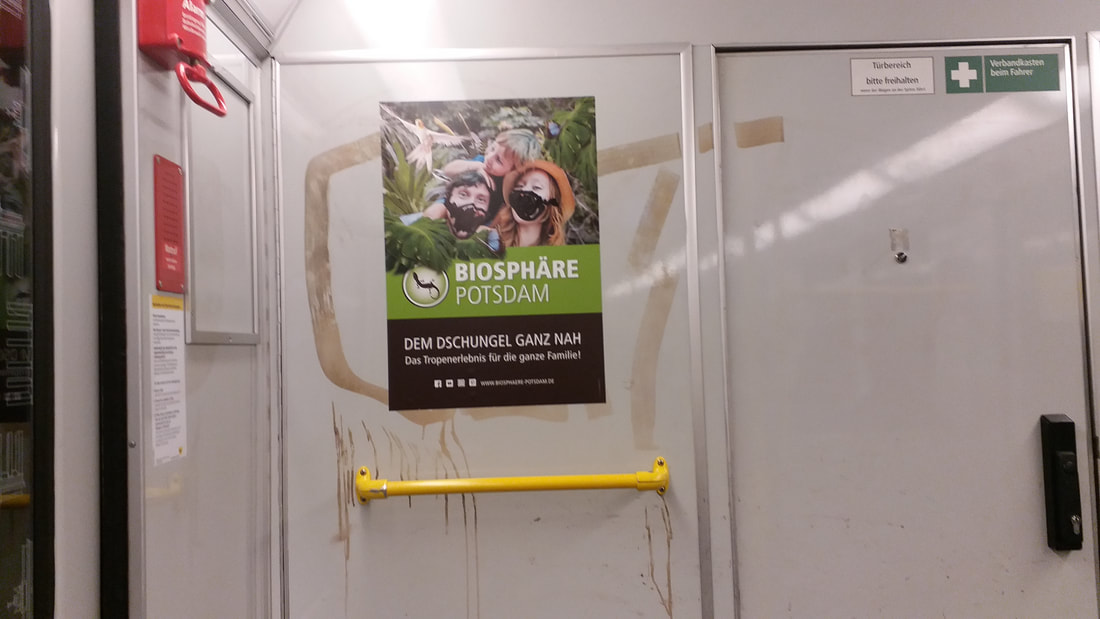 Yes, it was touching. And yes, this is the world I fell in love with, the world I escape to. “The only true currency in this bankrupt world is what you share with someone else when you’re uncool”. These are the words of America’s lauded rock critic Lester Bangs, a gloomy type but a fantastic writer whose essay on Van Morrison’s endlessly charming Astral Weeks is my go-to feelgood read. I can’t find it now, which is annoying, but it describes a weariness with a scene and culture he had felt had grown stale and performative somehow. The album blew that away, that nihilism, and sense of social dead-end-ness, a posturing turgidity– to use an expression that feels like something that might be uttered in conversation between Raskolnikov and Holden Caulfield. Astral Weeks brought something real and raw, something that inspired wonder. It reminds me of the ebbs and flows of passion, numbness and pain, and how there’s always the prospect of something waiting, just around the corner, that might make us feel –in Van Morrison’s words– born again. It is a beautiful album and I’ll listen to it now as I smoke this last cigarette. |
Sarah KaracsA Berlin-based writer engages in the study of belonging and in-between places after years spent faraway from 'home'. Archives
August 2023
Categories
All
|
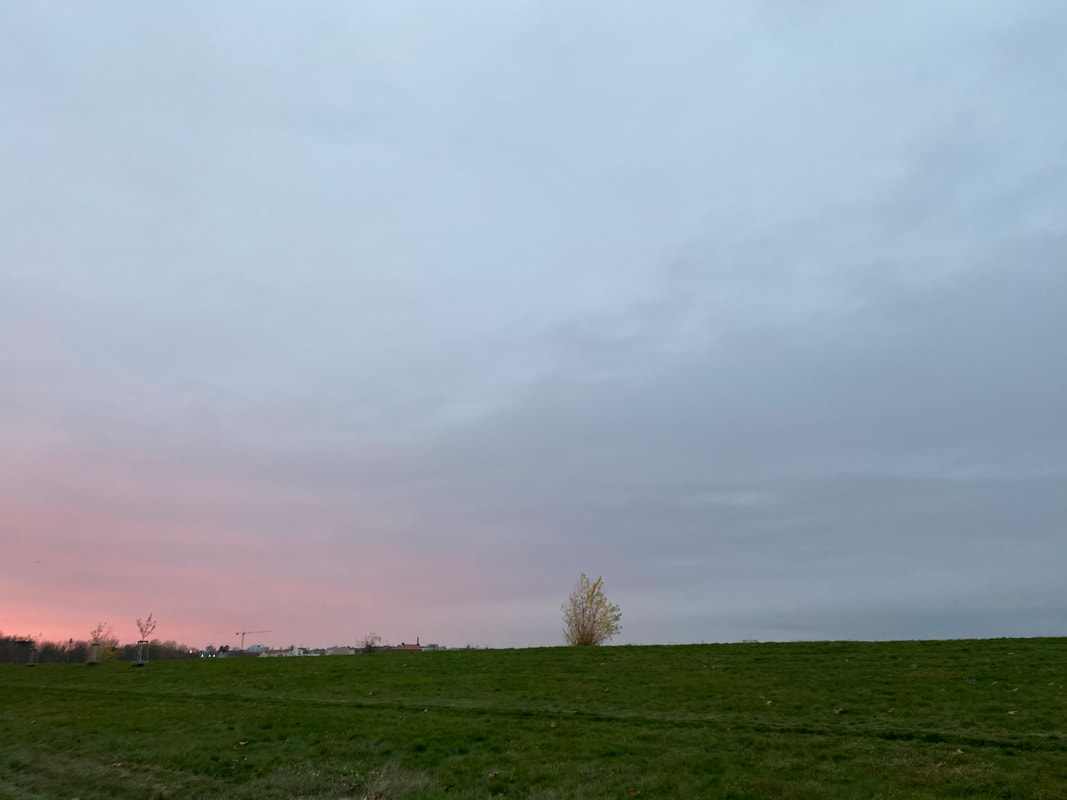
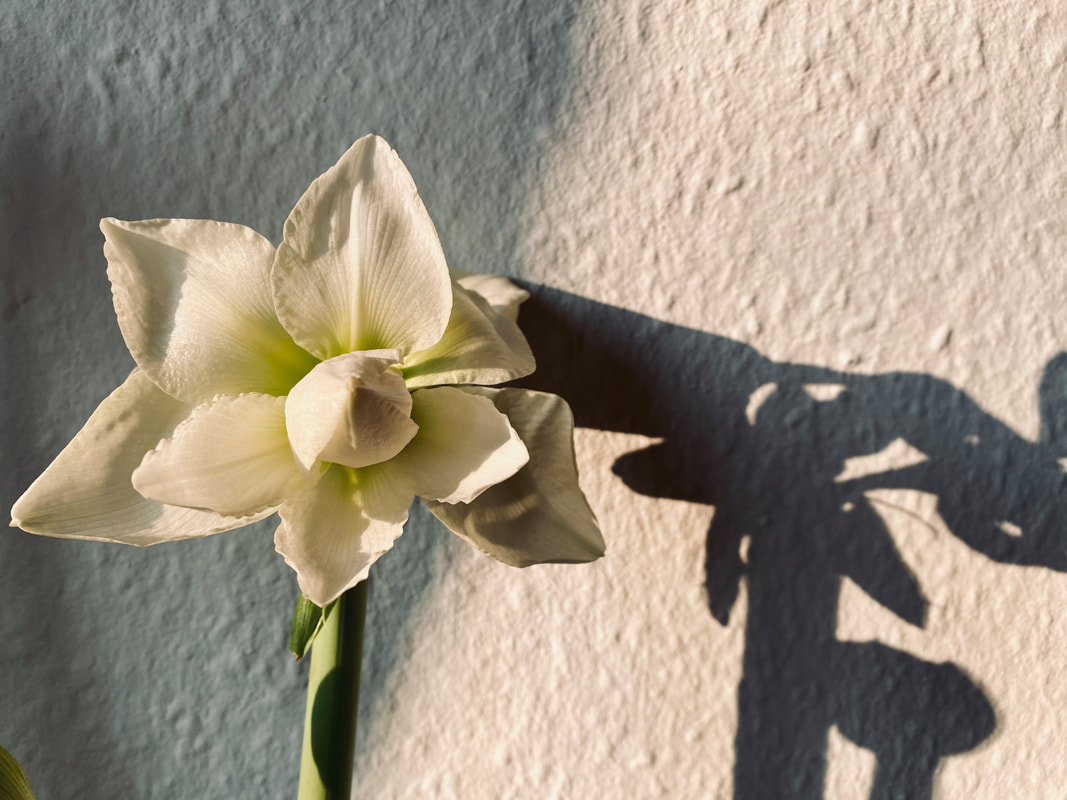
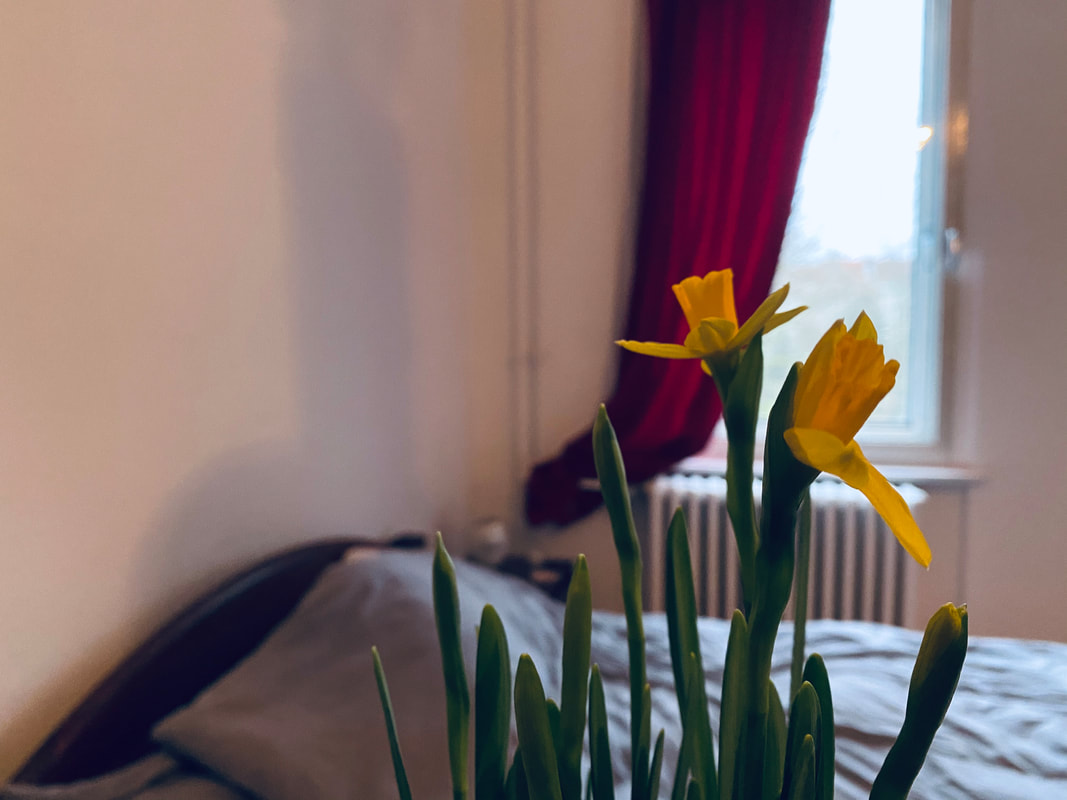
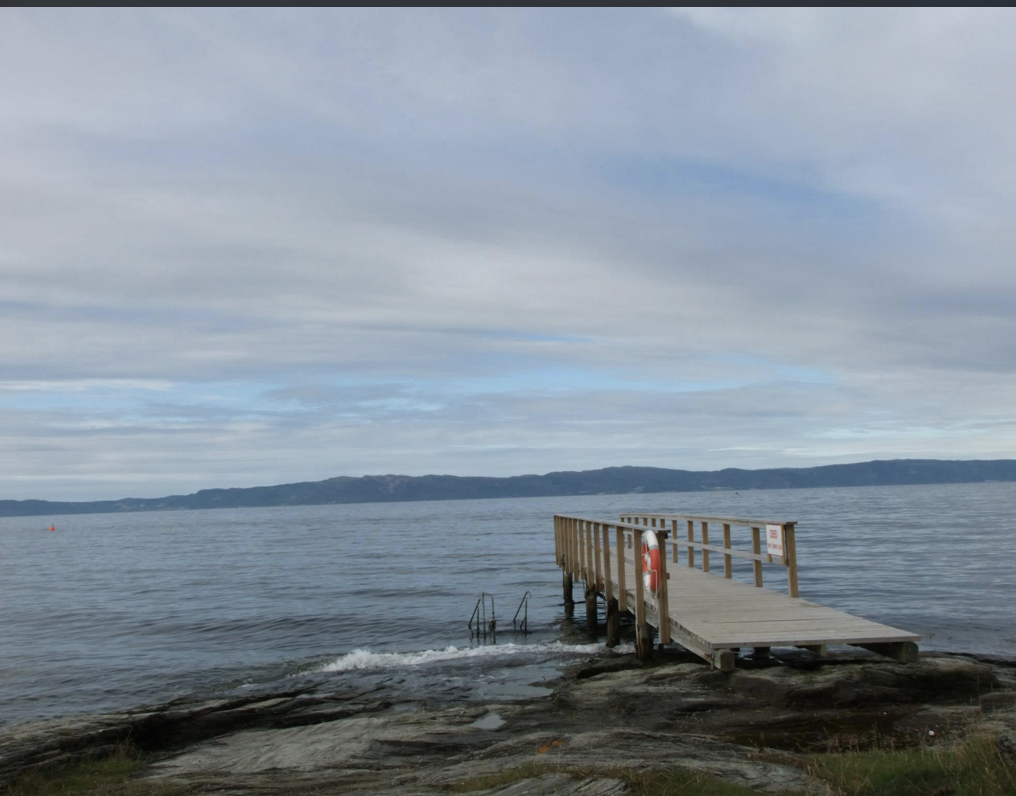
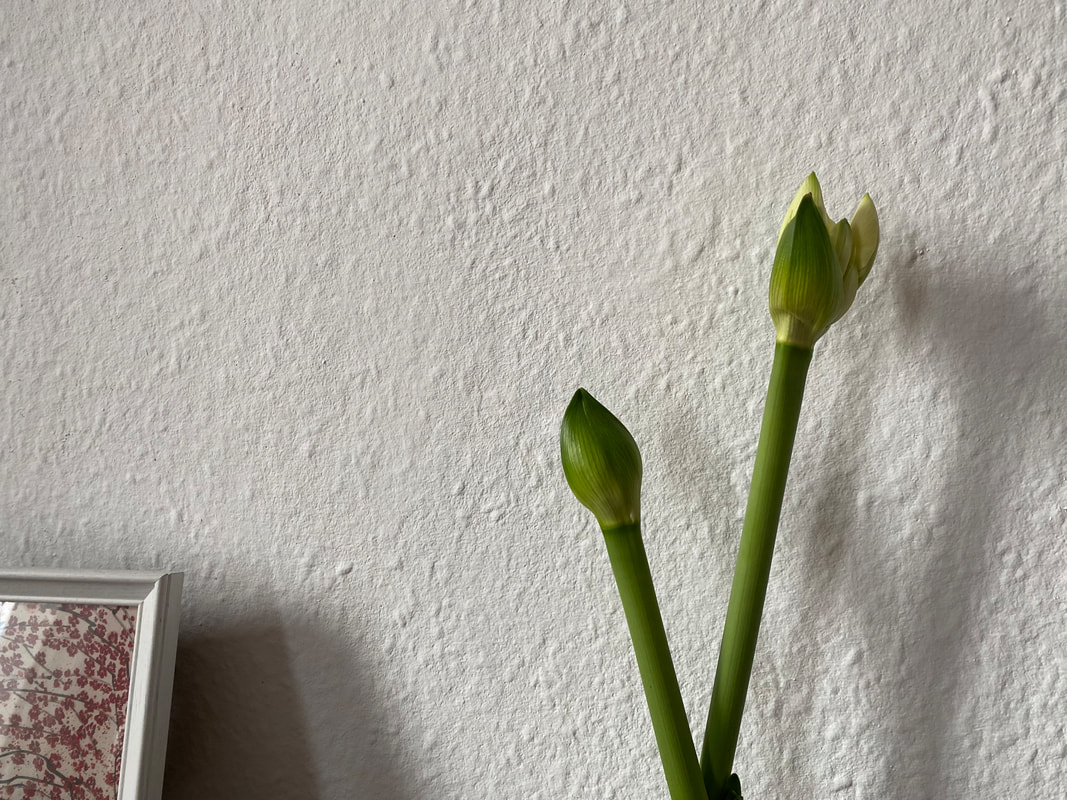
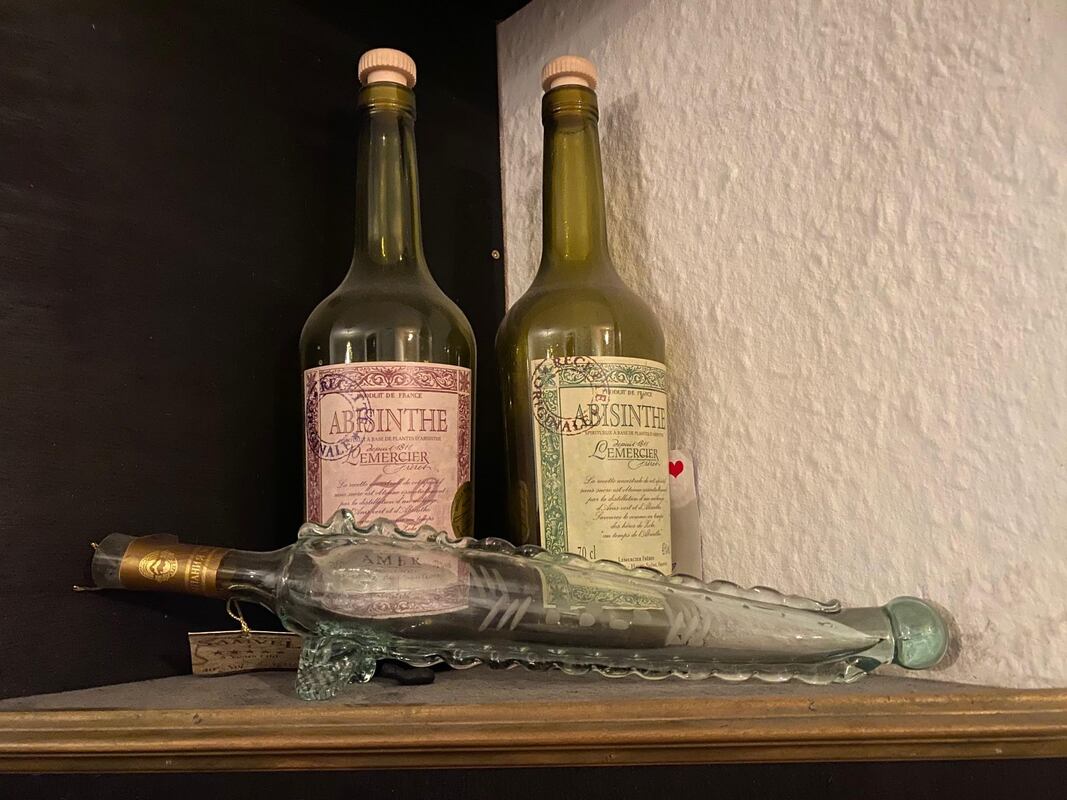
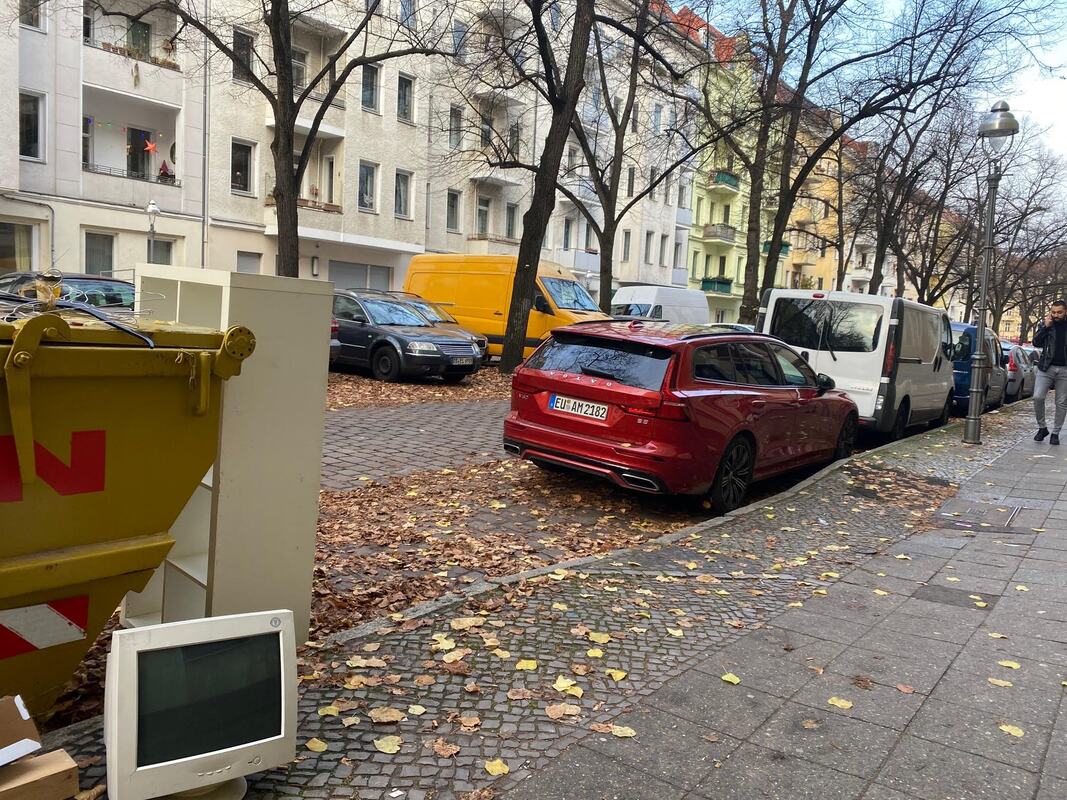
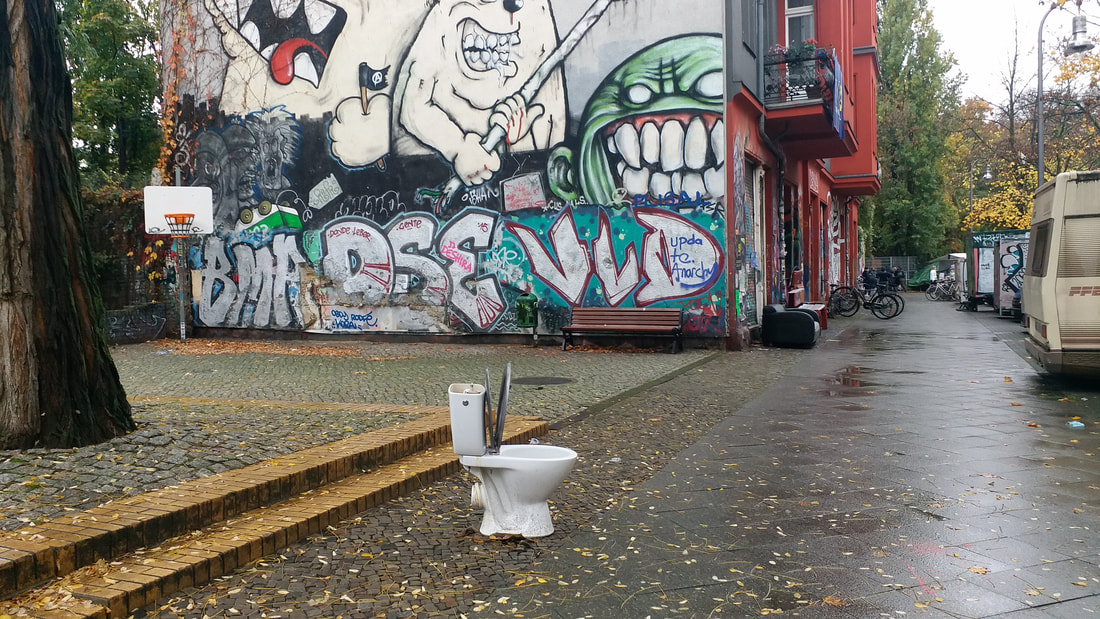
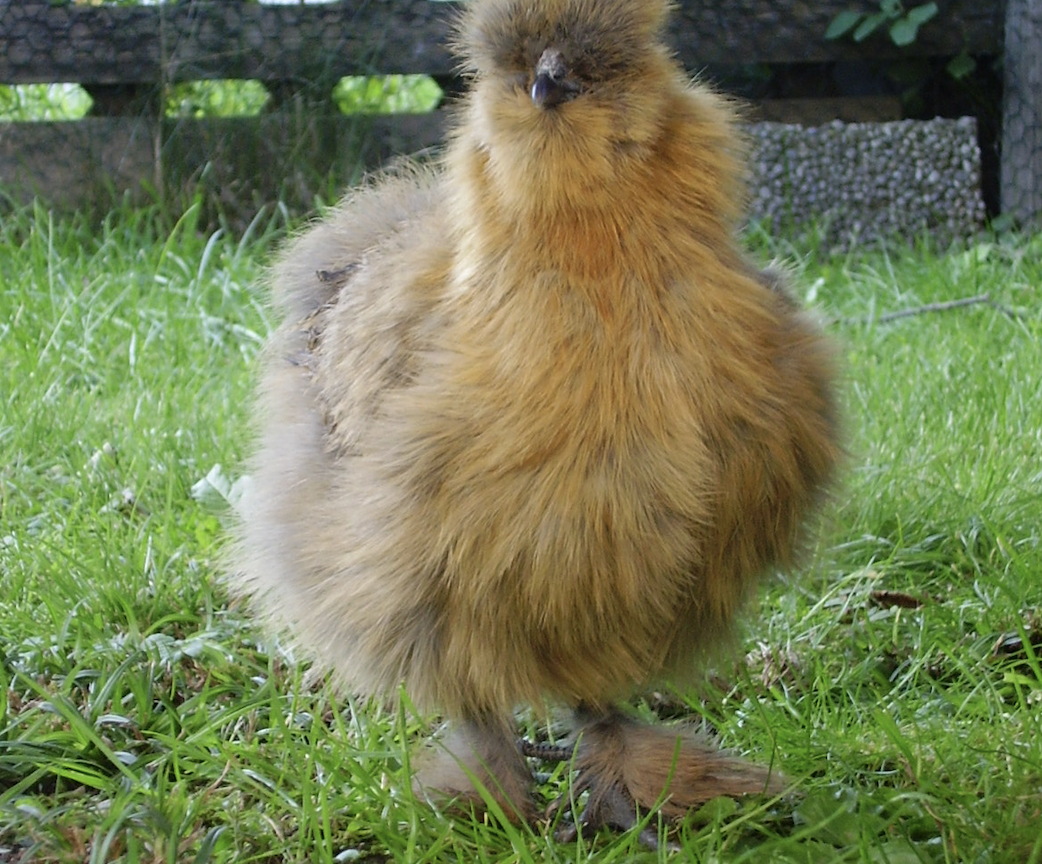
 RSS Feed
RSS Feed